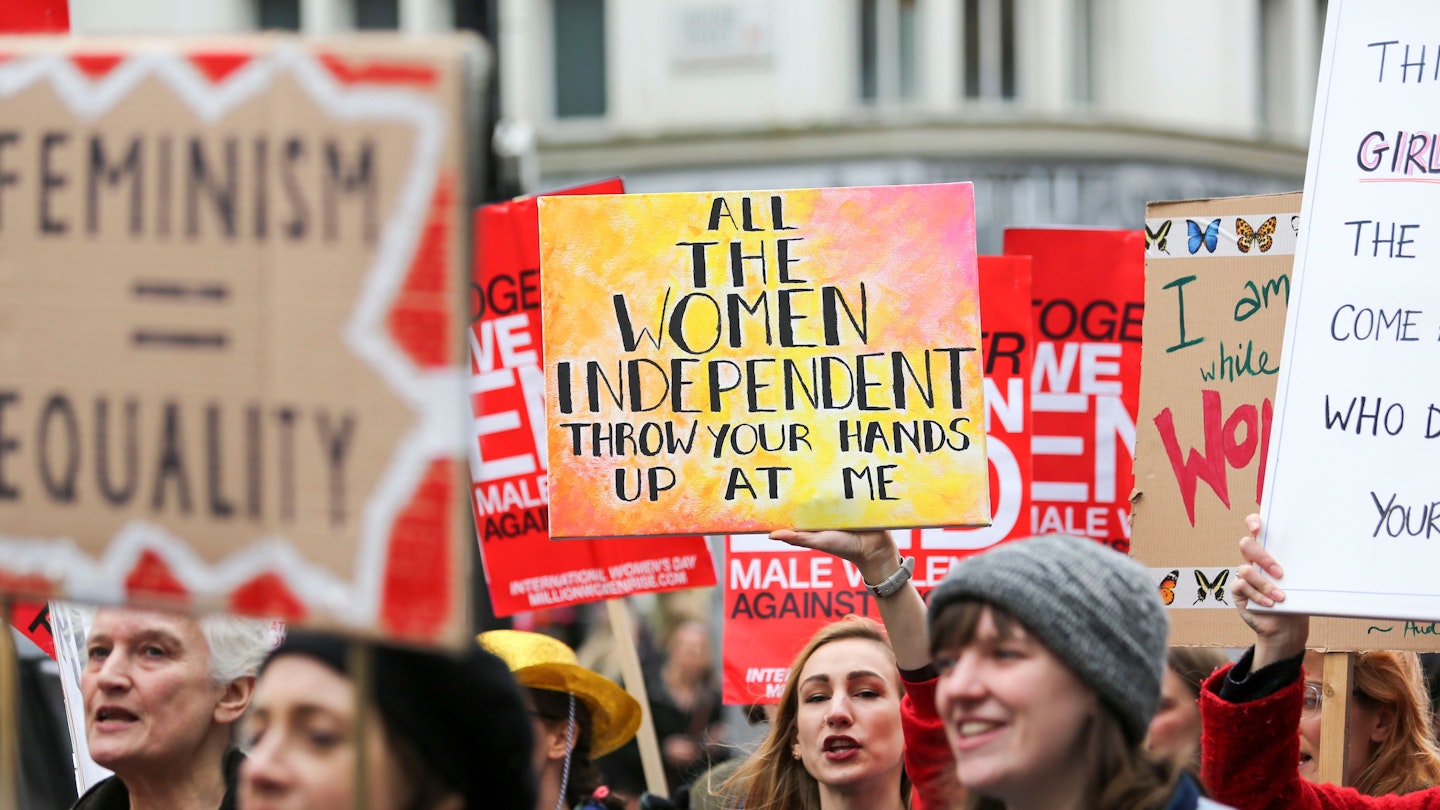On March’s International Women’s Day, as my Instagram feed filled up with the quote, ‘Here’s to strong women; may we know them, may we be them, may we raise them,’ I bit my tongue until I couldn’t hold my thoughts inside any longer. On my own Instagram page, I created a quote: ‘Here’s to soft women: may we know them, may we be them, may we raise them.’ Within five minutes some of the most independent, capable women I know liked and shared the image. I hit on a home truth you won’t read on a feminist T-shirt.
As one of my friends - a female entrepreneur who commands a team of 50 employees - wrote in a private message, ‘This is EXACTLY what I needed to read right now. I’m so tired of trying to live up to the strongest women in the world, then feeling like I’m a failure.’
As a generation, we take pride in our emotional hardiness. But let’s look at the evidence... Mental illness in women is at an all-time high. A fifth of women say they ‘always or often feel lonely’ (although two- thirds would never confess to having a problem in public). Many of us are also unsatisfied in our relationships.
I’m thankful we live in a decade where women are not seen as meek – but have we gone too far in the other direction? In our desperation to prove we are the stronger sex – or at least equal – is our strength actually weakening us, and making us miserable?
Personally, ‘strength’ has never been a characteristic I’ve struggled with. In fact, quite the opposite was the case. I spent most of my twenties and early thirties so strong, I was soulless, friendless and joyless. And I’m not the only woman to feel this way.
Increasingly, among my female friends and colleagues, I’ve observed the downsides of being too independent, too capable and too resilient – loneliness, isolation, exhaustion and even infertility (after I was widowed at the age of 23, I didn’t have a period for seven years, as I overworked, overexercised and proved just how strong I was to everyone around me).
Instead of being conditioned to be doormats, we’ve been conditioned to be robots. When Hillary Clinton once cried during an interview, entire columns in global newspapers were devoted to the ‘news’. In popular culture, strong female characters are – dare I say – arseholes. Think of Jessica Jones (dysfunctional, angry, outcast) and Netflix’s portrayal of Sophia Amoruso in Girlboss (self-centred, egotistical, horrible to her boyfriend). We like to believe the cliché of a strong woman has moved on from ’80s power suits, but, in a way, it’s just as constrictive.
The arguable reality? We’re lonely because we push people away. We feel unsupported because we don’t accept support. We feel like failures because of our own unrealistic expectations – and all to prove we’re not the weaker sex any longer.
In fact, since Clinton’s presidential campaign, her spin doctor Jennifer Palmieri has examined why crying is the ultimate workplace sin, in her book Dear Madam President: An Open Letter To The Women Who Will Run the World. She looks at why women like Clinton (and herself ) ‘nod at bad news and keep going’. She then imagines what a power play it would be if we were to embrace it and all ‘showed up to work one day and started bawling’. In my opinion, this could be a healthier way.
While researching my book, The World Is A Nice Place: How To Overcome Adversity, joyfully, I met incredible women who’d endured unimaginable challenges. Yet none of them ever called themselves strong or aimed for that attribute. Instead of ‘muscling’ through, fighting back and pushing forward, they softened, accepted, released and submitted to their situation – not words that we usually associate with female empowerment.
Over the course of my own healing process, rather than toughening up, I’ve learned to ‘soften down’. For me, this means accepting help, letting my tears flow and admitting I can’t just ‘snap back’ from difficult situations.
It’s even affected my dress sense. During my ‘emotionally cold’ period, as my mother describes it, I cut my hair into a harsh bob, dressed in black and felt guilty for spending time on my appearance. These days, when I feel my walls go up, I choose floaty, floral clothes, paint my toenails and wear my hair loose. It helps me to be emotionally vulnerable – and today I see that as a positive rather than a negative.
As modern women, our ‘I can do anything’ mindset can make us islands. It has taken me a long time to and a balance where I can be strong, without seeing every day as a battle. Today, my baby daughter is my role model. At 16 months old, she expresses sadness unashamedly, cries without restriction, rests without guilt and relies on other people for guidance and comfort. In doing so, she’s the strongest, softest female I know.
The World Is A Nice Place: How To Overcome Adversity, Joyfully by Amy Molloy is out now.
